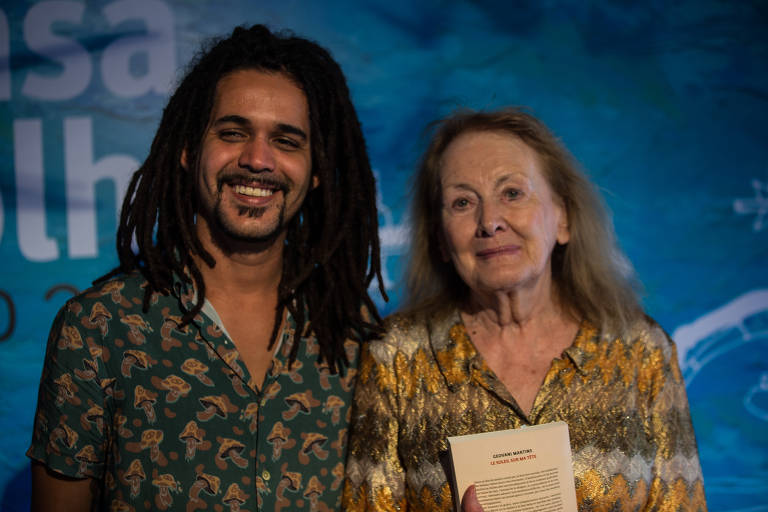Sunday morning (27) brought to Casa Folha, at Flip ( Paraty's Literary Festival ), the french writer Annie Ernaux, who won the Nobel Prize for Literature last month, in a dialogue with the young writer from Rio de Janeiro Geovani Martins. They are two authors celebrated for works that are very different and distant in geography and generation, but that have revealed unsuspected points of contact and mutual admiration, which turned the panel into a true testimony of an exchange of experiences.
One example is the way they approach historical facts in their books — if Ernaux writes about parts of her life in novels such as "O Lugar" ( "The place") and "The years", Martins created fiction based on the timeline of the installation of the UPPs ( Pacifying Police Unities) in Rio de Janeiro in the novel "Via Appia". "It is necessary to include the personal within a historical context because political facts have an impact on the destiny of each one of us," said Ernaux. "Eight days after I found myself pregnant and unwilling to have the child, Kennedy was assassinated. That didn't matter to me, but I had to mention it to place what I was telling." Martins stated that he wanted to record that specific period in Rio using unseen stories as a starting point, from the "intimate perspective" of young black people who had their lives affected by the overwhelming arrival of the police in the favela.
The French writer mentioned again one of the key points of her work, the crude description of the clandestine abortion she had when she was a university student, in the book "Happening". She claimed to have written it with the intention that no woman would ever experience a situation like this again. "I described in detail what happened so that people would know what it's like. In the hospital, we are despised and treated like dogs. Prohibition is something imposed by a male and religious power that hurts the dignity of women. How can we accept that?"
Translated by Cassy Dias
